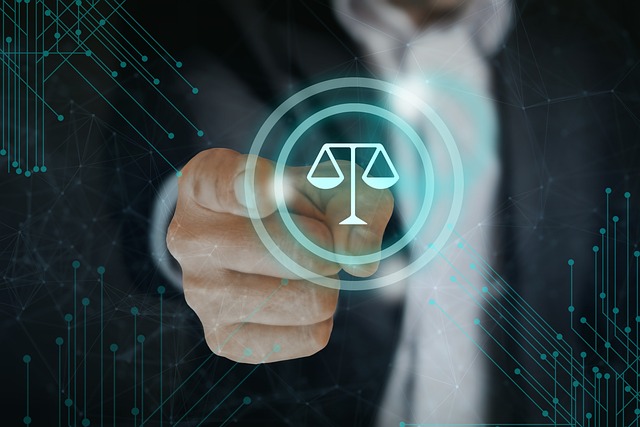Plea bargaining offers defendants reduced charges but carries ethical weight, affecting both individual lives and justice perception. Defense attorneys balance client interests with legal process integrity, considering evidence strength and potential outcomes. Confidential negotiations add complexity, as individuals make life-altering decisions with limited advice. Ethical implications demand fair, transparent processes, including information disclosure and third-party review in high-stakes cases to manage litigation risks.
Litigation Risk Management explores the intricate balance between justice and negotiation through plea bargaining—a critical aspect of criminal justice. This article delves into the legal perspective on plea agreements, uncovering the ethical dilemmas they present. We examine their impact on defendants’ rights and explore best practices to ensure fairness and transparency in plea bargain decisions, highlighting the essential considerations for managing litigation risks effectively while addressing the ethical implications.
- Understanding Plea Bargaining: A Legal Perspective
- Ethical Dilemmas in Criminal Justice Systems
- Impact on Defendants: Rights and Consequences
- Best Practices for Fair and Transparent Plea Agreements
Understanding Plea Bargaining: A Legal Perspective

Plea bargaining is a critical aspect of criminal justice, allowing defendants to negotiate a plea deal with prosecutors in exchange for accepting responsibility or reducing charges. From a legal perspective, this process offers both advantages and challenges. For his clients, it presents an opportunity to mitigate potential penalties, especially in complex cases involving white-collar defense, where all stages of the investigative and enforcement process can be intricate. However, the ethical implications of plea bargaining decisions are profound, as they impact not only the defendant’s future but also societal perceptions of justice.
The balance between encouraging guilty pleas to streamline court proceedings and ensuring fairness and accuracy in criminal cases is delicate. Lawyers involved in these negotiations must consider the potential consequences on their clients’ lives while adhering to professional standards. Ethical guidelines play a vital role, guiding attorneys to make decisions that protect their clients’ interests without compromising the integrity of the justice system.
Ethical Dilemmas in Criminal Justice Systems

The criminal justice system often grapples with complex ethical dilemmas, particularly when it comes to plea bargaining. This strategy, where a defendant agrees to plead guilty in exchange for reduced charges or sentencing, presents a delicate balance between ensuring fair prosecution and managing litigation risks. The ethical implications of plea bargaining decisions are profound, as they can impact both the individual’s rights and the overall integrity of the system.
When faced with a potential complete dismissal of all charges, defense attorneys must navigate a maze of considerations. They weigh the strength of the evidence against their client, the potential consequences if found guilty, and the likelihood of success in trial. This process requires a nuanced understanding of the law and a commitment to upholding justice while managing the client’s best interests. Moreover, as the system moves through all stages of the investigative and enforcement process, ethical practices become even more critical, ensuring that rights are respected and fair outcomes are pursued. This is especially relevant in general criminal defense, where attorneys play a vital role in guiding clients through these complex legal landscapes.
Impact on Defendants: Rights and Consequences

The impact on defendants of litigation risk management extends far beyond financial implications. For individuals or entities facing criminal charges, the decisions made during plea bargaining can have significant ethical ramifications. These negotiations, often shrouded in confidentiality, involve the weighing of potential sentences against the desire to avoid indictment. In the context of a general criminal defense strategy, especially for white-collar offenses, this process is pivotal. The right to a fair trial is balanced against the consequences of a plea bargain, which could result in reduced charges or sentencing but also carries the risk of admitting guilt.
The ethical implications are profound, particularly when considering the potential long-term effects on reputations and future opportunities. Defendants must weigh these factors against their best interests, often with limited legal representation. Plea bargaining decisions can thus shape not just the immediate outcome of a case but also the defendant’s trajectory in subsequent legal matters, underscoring the importance of meticulous litigation risk management.
Best Practices for Fair and Transparent Plea Agreements

Plea agreements are a critical aspect of litigation risk management, offering a path to resolve legal disputes outside of lengthy and costly jury trials. To ensure fairness and transparency, several best practices should be employed. First, both parties must provide complete and accurate information, avoiding any misleading or incomplete disclosures that could compromise the process. This is particularly vital in high-stakes cases involving corporate and individual clients, where the ethical implications of plea bargaining decisions are significant.
Additionally, an independent third party should review and assess the agreement to mitigate potential biases. This helps maintain the integrity of the process and ensures that the terms are reasonable and just. By adhering to these practices, legal professionals can foster trust among all stakeholders, ultimately leading to more favorable outcomes for both corporate and individual clients in complex litigation scenarios.
Plea bargaining, while a critical component of criminal justice systems, presents complex ethical dilemmas with significant consequences. Balancing the need for efficient dispute resolution against defendants’ rights demands careful consideration. By understanding plea bargaining from both legal and ethical perspectives, practitioners can develop best practices to ensure fair and transparent agreements. This approach not only mitigates litigation risk but also upholds the integrity of the justice system, addressing the crucial ethical implications of plea bargaining decisions.






